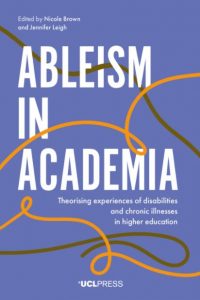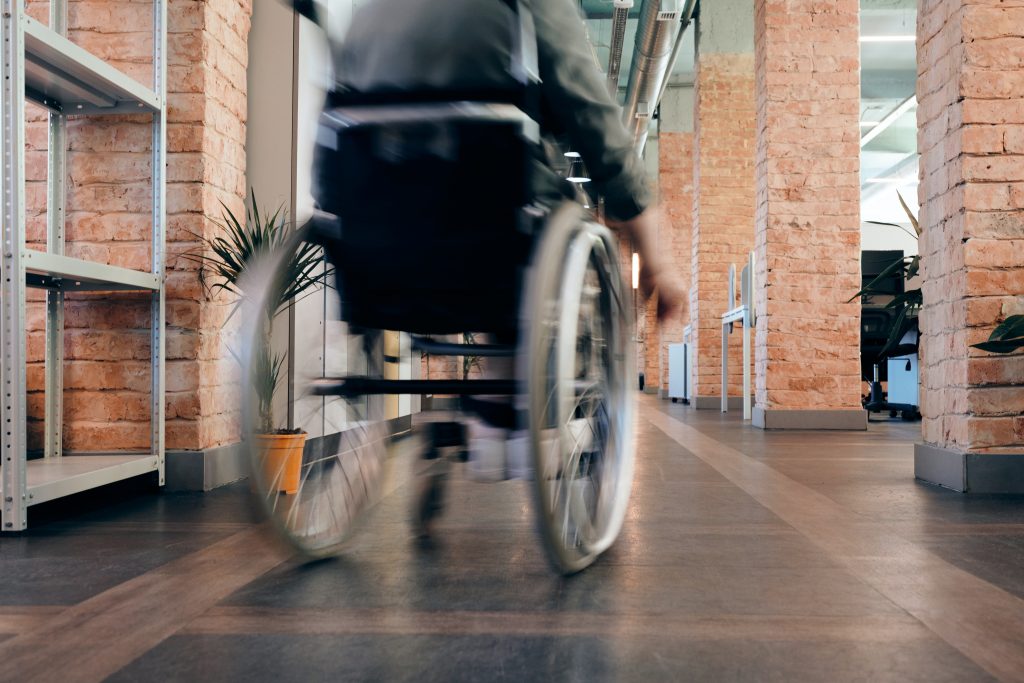It was our privilege to support the launch of the widely anticipated book ‘Ableism is Academia: Theorising experiences of disabilities and chronic illness in higher education’.
Ableism in Academia, edited by Nicole Brown and Jennifer Leigh and published by UCL Press on 5 October, provides an interdisciplinary outlook on the experience of ableism of academia.
In this online event delegates discussed the importance of Equality Diversity and Inclusion for staff and students in Higher Education, shared perspectives on policy and practices that relate to disabilities and chronic illnesses within the context of neoliberal academia, and highlighted these as areas that need and warrant strategic attention.
The discussants were:
- Dr. Neil Harrison, Deputy Director of the Rees Centre, Senior Researcher and Associate Professor at the University of Oxford
- Dr. Amanda Bates, Co-Chair of the University of Kent’s Disability Staff Network
- the editors, Dr. Nicole Brown from UCL Institute of Education and Dr. Jennifer Leigh from the University of Kent
- Dr. El Spaeth from the University of Glasgow who is one of the contributors to the book.
- Professor Fiona Kumari Campbell, Professor of Disability and Ableism Studies, University of Dundee.
Event resources
- Marginalisation and ableism for staff in higher education slides by Dr. Neil Harrison.
- Ableism in academia slides by Dr. Nicole Brown.
- Ableism in academia talk by Professor Fiona Kumari Campbell.
About the book

Rather than embracing difference as a reflection of wider society, academic ecosystems seek to normalise and homogenise ways of working and or being a researchers. As a consequence, ableism in academic is endemic. However, to date no attempt has been made to theorise experiences of ableism in academia. Ableism in Academic provides an interdisciplinary outlook on ableism that is currently missing. Through reporting research data and exploring personal experiences, the contributors theorise and conceptualise what it means to be/work outside the stereotypical norm. The volume brings together a range of perspectives, including feminism, post-structuralism, crip theory and disability theory, to interrogate aspects of identity, aspects of how disability is performed, and to argue that ableism is not just a disability issue.
Download a free Open Access copy of the book online.
Print copies of the book are also available to buy in hardback and paperback.

